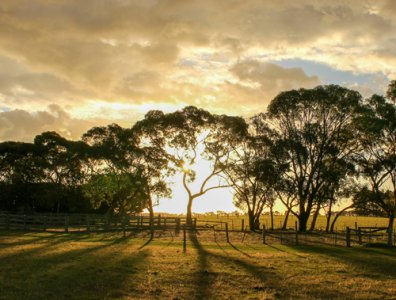IMHO: Nature as shareholder: Reimagining governance in a time of change
Aotearoa has granted personhood to rivers and maunga. Could companies be next?
OPINION: When I first began exploring the idea of nature as shareholder, many thought it was too radical, too conceptual. That exploration recently took shape in a paper I published called Nature as shareholder: Who speaks for the trees?. In it, I considered what it would mean for ecosystems to have a formal voice in our companies and organisations.
Increasingly the world around us is showing just how urgent it is to rethink our paradigms of governance. From floods to wildfires, melting glaciers to biodiversity loss, the natural world is sending us a clear message. Directors must ask: who speaks for the trees, rivers and ecosystems on which our companies depend?
More than 50 years ago, Milton Friedman declared the sole responsibility of business was to maximise profit. Around the same time, Dr Seuss published The Lorax, with its cautionary tale of unchecked exploitation of nature. These two narratives – shareholder primacy and stewardship – continue to shape boardrooms today.
We now know that a pure profit-maximisation approach is unsustainable. Climate change, biodiversity loss and social inequity are proving that stakeholders cannot be ignored. But what would it mean if nature itself had a formal voice in the governance of our companies? Could we structure boards and ownership models so that ecosystems were not just impacted by business, but actually participated in decision-making?
Aotearoa New Zealand has already pioneered new thinking. The Whanganui River, Te Urewera and Taranaki Maunga have each been granted legal personhood through legislation. In each case, guardians or boards represent the interests of these natural entities. This is not symbolic – it is legally binding. It shows us that our legal system can evolve to embed kaitiakitanga and respect for ecosystems into governance structures.
Imagine extending this concept into the corporate sphere. A company could issue shares to a charitable trust representing a river, forest or species. That trust, with appointed trustees as kaitiaki, would hold a seat at the board table. Nature’s interest would no longer be invisible; it would be present, active and guiding long-term decisions.
We are already seeing early experiments in this direction.
- The Wairuakohu Charitable Trust holds shares in a venture to ensure that a taonga species and its ecosystem are represented in commercial decisions.
- Generous Ventures is developing steward-ownership models that give “mission-lock” veto shares to ensure that companies remain true to their founding purpose.
- Tākaka Cohousing Project embedded a charitable trust with environmental restoration as its purpose at the heart of its legal structure, ensuring the whenua is a central shareholder in community governance.
These models demonstrate that new ownership and governance approaches are not only possible but already underway.
For directors, this shift also aligns with the rise of impact investing, capital that seeks both financial returns and measurable social or environmental outcomes. At Parry Field we’ve seen investors increasingly demand not only disclosure of climate and nature impacts but also assurance that governance structures align with long-term sustainability. And impact investors are signalling that the future of capital will flow toward system-level solutions.
This is part of a global trend toward system-centric investing: moving beyond “what impact can I generate with my capital?” to “what capital is needed to transform the system, and what role can I play?”
The implications for directors are profound. If nature is viewed as a shareholder or at minimum as a stakeholder, boards will need to expand their time horizons, reframe fiduciary duties and consider ecological thresholds as non-negotiable limits, not externalities.
So how can directors begin this journey?
- Symbolic steps: Leave an empty chair at the board table to remind directors of nature’s stake in decisions.
- Structural innovation: Explore new classes of shares or trusts that give nature formal representation.
- Policy integration: Embed nature-positive principles into constitutions, strategies, and reporting frameworks.
- Engagement with Māori worldviews: Te Ao Māori offers profound guidance on whakapapa and interconnection that can enrich governance models.
Directors don’t need to wait for legislation. Just as the corporate form itself was once an innovation, so too can we create new models today that better reflect intergenerational stewardship.
Of course, there are challenges. Defining “nature,” avoiding tokenism and ensuring investor confidence are real hurdles. Some entrepreneurs have already faced scepticism when proposing nature as shareholder structures. Yet as directors we should recall that companies themselves are a legal fiction created by humans and therefore capable of being reimagined.
What once seemed radical, limited liability companies, sustainability reporting or climate risk disclosures, quickly became mainstream. The same may happen with nature-inclusive governance.
For directors, the choice is clear. We can continue business as usual, or we can step into a new paradigm where nature is not a silent bystander but an acknowledged participant in governance.
As the Lorax said: “Unless someone like you cares a whole awful lot, nothing is going to get better. It’s not.”
The question for today’s directors is simple: will we care enough to act before it’s too late?
Steven Moe MInstD is a partner at Parry Field Lawyers based in Christchurch and works in corporate law providing advice to companies, not-for-profits and social enterprises. He is on five boards and for one is chair – Community Finance, which has raised $93 million for social housing. He is a member of the Edmund Hillary Fellowship, the XRB Advisory Panel and hosts Seeds – a podcast with 300+ long-form conversations on governance, leadership and entrepreneurship. Steven is also a facilitator on the Company Directors’ Course.



